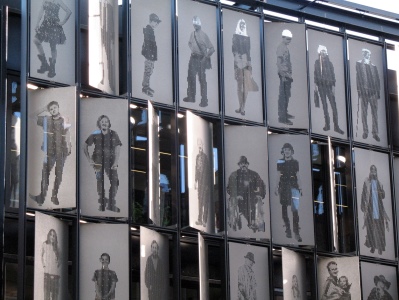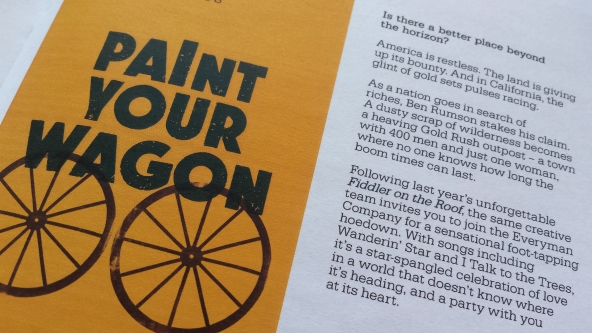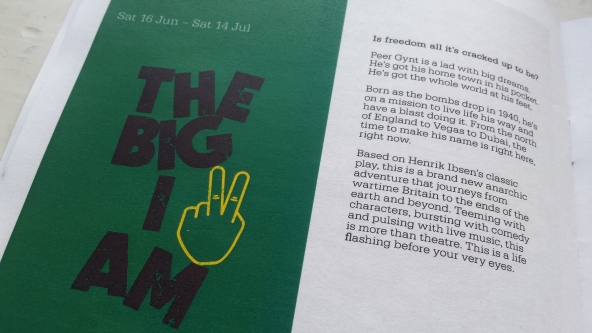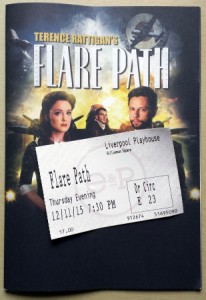During the course of a career, copywriters can be called on to write about all kinds of subjects. Throughout my mumble mumble years in the trade, I’ve covered video games, roof insulation, mobile phones, financial services, sportswear, residential developments, slate mining, the motor industry, pharmaceuticals, dentistry, pets, and more. Lots more.
With a couple of exceptions, I didn’t know much about those subjects before I began work on them, and I don’t necessarily know much about them now. But while I was engaged in writing about them, I took time to find out as much as was relevant to the task in hand, and turned that hastily accrued knowledge into copy that was right for its audience.
On one occasion, when writing a manual for a World War Two flight simulation game, I more or less had to learn how to fly a plane. It was a while ago, so please don’t ask me to shift one of EasyJet’s finest from Manchester to Alicante, but for the duration of that project, I started to feel that piloting a Spitfire wasn’t beyond my capabilities.
Clearly, the transition from self-confessed ignoramus to delusional expert is a copywriter’s occupational hazard.
However, not every project follows this trajectory. When genuine personal passions and professional duties collide – when the writer has already built up a significant breadth of knowledge on the subject – the result can be a special kind of job.
And so it was for me when the team at Liverpool’s Everyman Theatre asked me to write the marketing copy for their 2018 repertory season. After all, the Everyman is a venue I’ve supported for over 20 years, and when it reopened after major reconstruction in 2014, I wrote about the role it has played in my life. I regularly review its shows, and one of my sons is even immortalised within its architecture. And if that sounds unlikely, you can see him here: top row, third from left…
I was therefore well placed to understand the importance of the season to the theatre, and I knew that the four disparate productions – Paint Your Wagon, A Clockwork Orange, Othello and The Big I Am – needed to feel like a coherent whole. The Everyman has created a stir recently with its decision to return to a repertory model, and with a single company of 14 actors performing all four shows, one aim is to encourage audiences to see the full set.
But 20-plus years of prior knowledge can only get you so far. In order to write about each production succinctly and yet enticingly, I needed to get a grip on what each one was about. The way to do that, of course, was to read the scripts. But a script is only the foundation of a show. It’s what the creative team does with it that really counts, so I also conducted lengthy interviews with the Everyman’s artistic director and associate director (Gemma Bodinetz and Nick Bagnall respectively) to get an idea of what they had in mind for each play.
With the research done, I wrote the required words: four pieces of writing of around 100 words each, all intended to be used in print brochures, online, and as cut-down text in a variety of contexts such as promotional emails.
You can read the finished pieces here: Paint Your Wagon, A Clockwork Orange, Othello, The Big I Am. (And before anyone gets in touch to tell me Othello is referred to as “she”… no, that’s not a typo.)
It doesn’t sound like much, does it? Four chunks of 100 words. But the reading, the talking, the thinking and discussing that went into this project – not to mention the years of theatre-going that preceded it – were all key to doing a good job. Effective writing demands a degree of background knowledge, and the only option for a copywriter is to either be an expert, or to become one. Fast.
As I write, the Everyman’s rep season is on sale, with shows running from March until July 2018. How effective my words have been on this occasion is for others to say, but for my part, I’m inordinately proud to have been involved in the venue’s rich theatrical story, and its continuing repertory tale.
And if you’re within reach of Liverpool and you fancy a treat, come and place your bum on one of its seats soon.
You can find my 2014 article about the Everyman here, and my 2016 piece about the theatre’s ex-artistic director, Alan Dossor, is here.





